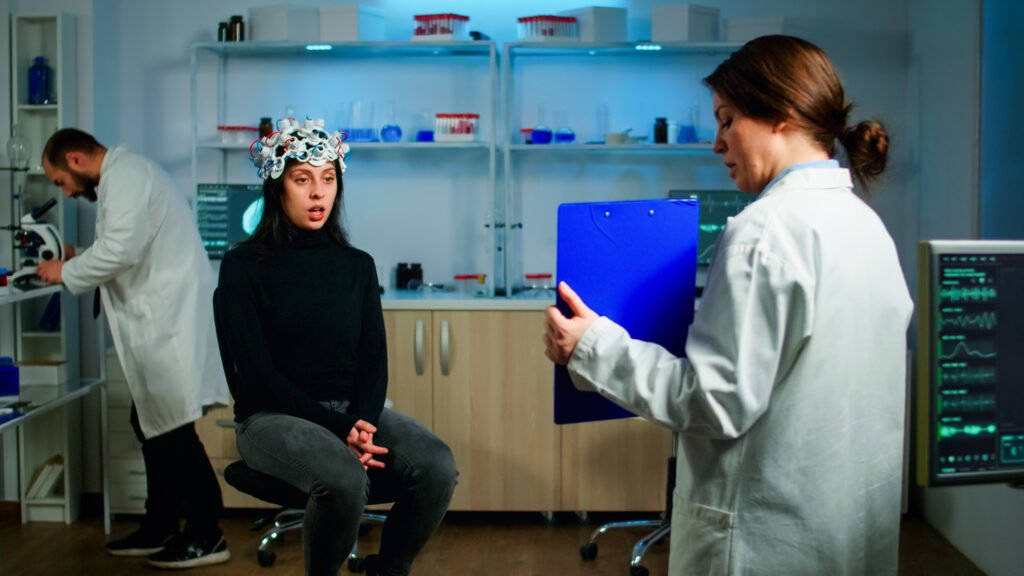Caring for a loved one with permanent psychosis can be a daunting and emotional journey. Permanent psychosis is a severe mental health condition characterized by a persistent disconnection from reality. Unlike temporary episodes of psychosis, permanent psychosis involves enduring symptoms that significantly impact daily functioning. As a caretaker, understanding the nature, causes, symptoms, and treatment options is crucial to providing effective support. This guide aims to help caretaking families navigate the complexities of permanent psychosis.
What is Permanent Psychosis?
Permanent psychosis, also known as chronic psychosis, involves ongoing symptoms such as hallucinations, delusions, and disorganized thinking. These symptoms persist over long periods, often despite treatment, and can profoundly disrupt an individual’s ability to function. Understanding the nature of these symptoms can help families develop empathy and patience when caring for their loved ones.
Symptoms of Permanent Psychosis
The symptoms of permanent psychosis can vary in intensity but generally include:
Hallucinations Hearing, seeing, or feeling things that are not present. Auditory hallucinations, such as hearing voices, are the most common.
Delusions: Strongly held false beliefs that are resistant to reason or contrary evidence. Common delusions include paranoia, grandiosity, and beliefs of being controlled or persecuted.
Disorganized Thinking
Difficulty organizing thoughts, leading to incoherent speech and trouble following conversations.
Disorganized or Catatonic Behavior
Erratic or abnormal behavior that can range from agitation and hyperactivity to complete unresponsiveness.
Negative Symptoms
Reduced ability to function normally, including lack of motivation, social withdrawal, and flattened affect (reduced expression of emotions).
Causes of Permanent Psychosis
Permanent psychosis can result from a variety of underlying conditions and factors, including:
Schizophrenia
A chronic mental disorder characterized by episodes of psychosis, affecting a person’s ability to think clearly, manage emotions, and interact with others.
Schizoaffective Disorder
A condition featuring symptoms of both schizophrenia and mood disorders, such as depression or bipolar disorder.

Severe Bipolar Disorder
Individuals with bipolar disorder may experience psychotic symptoms during severe manic or depressive episodes.
Substance-Induced Psychosis
Long-term abuse of drugs or alcohol can lead to persistent psychotic symptoms.
Brain Injuries or Neurological Disorders
Conditions such as brain tumors, epilepsy, or neurodegenerative diseases can cause chronic psychosis.
Severe Trauma or Stress: Intense psychological trauma or prolonged stress can contribute to the development of psychotic disorders.

Treatment Options for Permanent Psychosis
Managing permanent psychosis requires a comprehensive and multifaceted approach. Here are key treatment options that caretaking families should consider
Medication
Antipsychotic medications are essential for reducing symptoms such as hallucinations and delusions. Consistent medication management is crucial to prevent relapse.
Psychotherapy
Cognitive Behavioral Therapy (CBT) and trauma-focused therapies like EMDR (Eye Movement Desensitization and Reprocessing) can help individuals process traumatic memories and develop healthier coping mechanisms.

Supportive Therapies
Occupational therapy, social skills training, and rehabilitation programs can assist individuals in regaining independence and improving their quality of life.
Hospitalization
In severe cases, hospitalization may be required to stabilize the individual and provide intensive treatment.
Community Support Peer support groups, community mental health services, and family education programs play a vital role in ongoing care and support.
Integrated Treatment
Combining medication, therapy, and supportive services in a coordinated manner can enhance treatment effectiveness and improve outcomes.
Tips for Caretaking Families
Caring for a loved one with permanent psychosis can be challenging, but there are strategies to help manage the journey:
Educate Yourself
Understanding permanent psychosis, its symptoms, and treatments will equip you to provide better support and advocate for your loved one.
Build a Support Network
Connect with other families in similar situations through support groups. Sharing experiences and advice can provide comfort and practical help.
Establish Routine: A structured daily schedule can provide stability for your loved one, helping them feel more secure and less anxious.
Encourage Medication Adherence
Ensure that your loved one takes their medication as prescribed. Medication is critical in managing symptoms and preventing relapses.
Practice Self-Care
Caring for someone with permanent psychosis can be exhausting. Make sure to take time for yourself to recharge and seek support when needed.
Communicate with Professionals
Maintain regular communication with mental health professionals to stay informed about your loved one’s treatment and progress.
Create a Safe Environment
Ensure that your home is a safe and supportive place for your loved one, free from triggers that might exacerbate their symptoms.
Permanent psychosis is a complex and enduring mental health condition that requires a comprehensive and individualized approach to treatment. As a caretaking family, understanding the symptoms, causes, and available treatment options can empower you to provide effective support and help your loved one manage their condition. While the journey may be challenging, with the right care and support, individuals with permanent psychosis can achieve stability and improve their quality of life.
Iram Gilani
Author | Speaker | Mentor
Book: Invisible Tears
www.IramGilani.com
Contact@IramGilani.com











